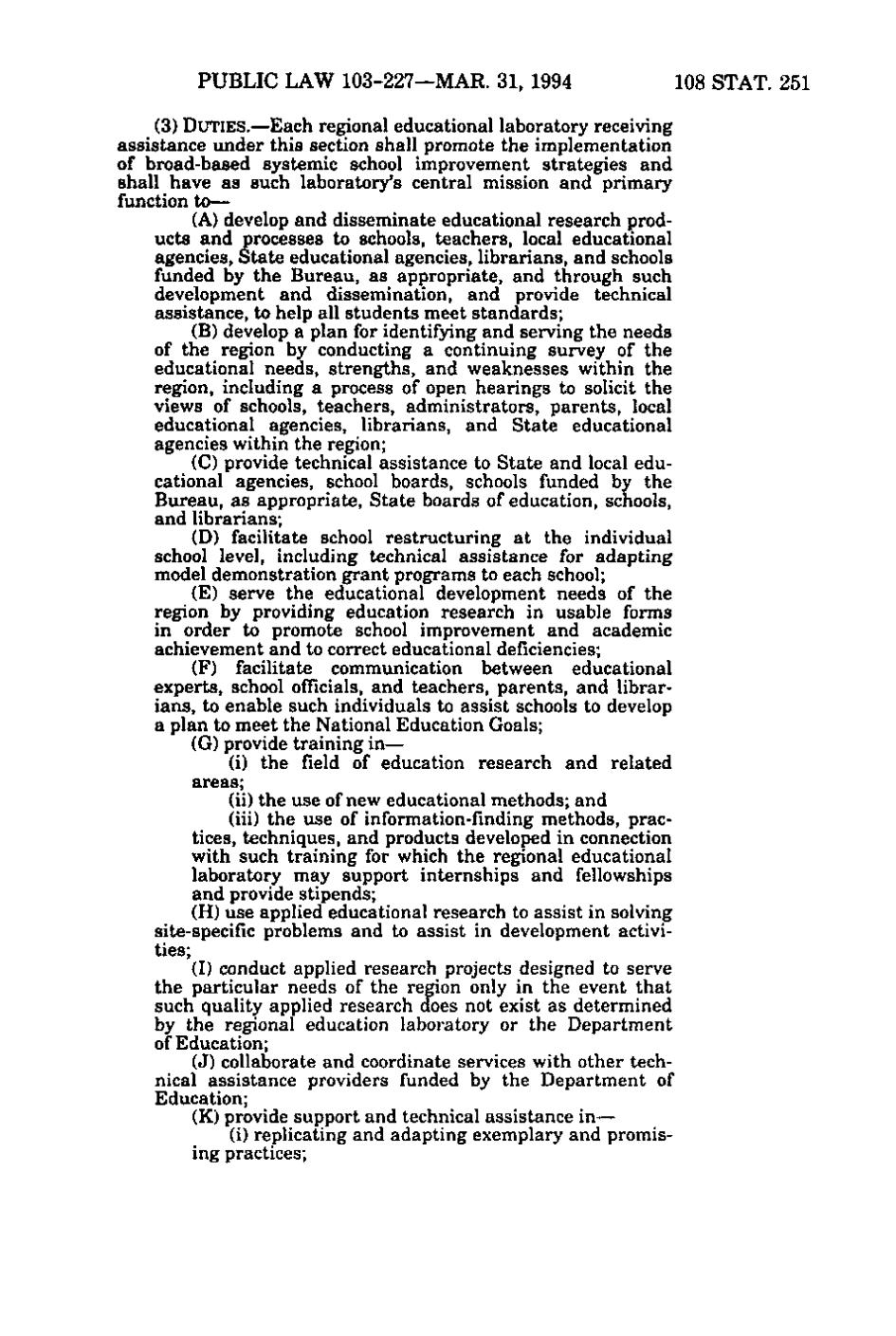PUBLIC LAW 103-227—MAR. 31, 1994 108 STAT. 251 (3) DUTIES. —Each regional educational laboratory receiving assistance under this section shall promote the implementation of broad-based systemic school improvement strategies and shall have as such laboratory's central mission and primary function to— (A) develop and disseminate educational research products and processes to schools, teachers, local educational agencies. State educational agencies, librarians, and schools funded by the Bureau, as appropriate, and through such development and dissemination, and provide technical assistance, to help all students meet standards; (B) develop a plan for identifying and serving the needs of the region by conducting a continuing survey of the educational needs, strengths, and weaknesses within the region, including a process of open hearings to solicit the views of schools, teachers, administrators, parents, local educational agencies, librarians, and State educational agencies within the region; (C) provide technical assistance to State and local educational agencies, school boards, schools funded by the Bureau, as appropriate. State boards of education, schools, and librarians; (D) facilitate school restructuring at the individual school level, including technical assistance for adapting model demonstration grant programs to each school; (E) serve the educational development needs of the region by providing education research in usable forms in order to promote school improvement and academic achievement and to correct educational deficiencies; (F) facilitate communication between educational experts, school officials, and teachers, parents, and librarians, to enable such individuals to assist schools to develop a plan to meet the National Education Goals; (G) provide training in— (i) the field of education research and related areas; (ii) the use of new educational methods; and (iii) the use of information-fmding methods, practices, techniques, and products developed in connection with such training for which the regional educational laboratory may support internships and fellowships and provide stipends; (H) use applied educational research to assist in solving site-specific problems and to assist in development activities; (I) conduct applied research projects designed to serve the particular needs of the region only in the event that such quality applied research does not exist as determined by the regional education laboratory or the Department of Education; (J) collaborate and coordinate services with other technical assistance providers funded by the Department of Education; (K) provide support and technical assistance in— (i) replicating and adapting exemplary and promising practices;
�
